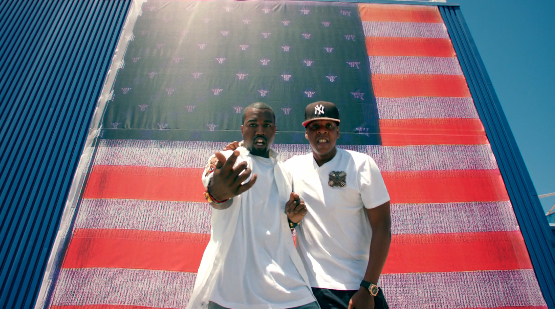
From Marc Lynch, Foreign Policy: [T]he structure of the balance of power in the rap world continued to evolve towards multipolarity, if not an actual hegemonic transition, in the midst of a serious financial crisis afflicting the entire industry — a situation not unfamiliar to the White House. The relentless rise of southern rap mirrors the economic and political rise of Asia. What had once been a marginal, derivative, and largely dismissed regional genre has risen to be a legitimate contender for hegemony. Lil Wayne and his Young Money label racked up success after success alongside older southern powers like T.I. and newcomers like B.o.B. The West Coast, like Europe, has declined significantly since its old great power days. Dr Dre and Snoop Dogg still do their thing, but rarely had a major impact anymore (RIP Nate Dogg, by the way); we’ll see if Game’s new RED album does better. 50 Cent, a great power only a few years ago, has largely collapsed — Russia, perhaps? — with his latest album barely reaching the charts. Eminem returned strong after a long struggle with depression and an addiction to sleeping pills to make the ferociously brilliant Recovery album; but like, say, India or Brazil he has always been a powerhouse in his own world, neither influencing nor affected by the wider field. All struggle with declining album sales. . . .
Jay-Z and Kanye therefore solidified their place on the throne not by crushing their rivals but by inspiring them to be their best as part of a team, through creative use of the internet for public diplomacy, and by working within rather than trying to dictate new norms. They recognized that "no one man should have all that power." Jay-Z was willing to "lead from behind" and share the spotlight in order to build a broad and effective coalition. This approach to leadership encouraged others to step up and share the burden, even when he could have easily dominated on his own. Like the U.S. did for NATO in Libya, he and Kanye contributed unique assets (the ability to command public attention, tracks from the best producers like Swizz Beatz and Pete Rock, their own skills). And it worked. Potential competitors clamored to get in to this new order rather than bashing it from afar, while the attractiveness of the partnership pushed those invited to join to step up their game and perform at their peak. . . .
Watch the Throne therefore should not be judged as an album, but rather as a move in this savvy strategy of institutionalizing hegemony in the face of potential decline. Kanye and Jay-Z’s alliance offers a new blueprint for managing decline in a turbulent world from which international relations scholars and American foreign policy practitioners alike should learn. And if politicial scientists don’t want to take lessons from hip hop artists, then allow me to give the last word to Cyhi Da Prince: "my haters got PhDs, y’all just some major haters with some math minors." (photo: Foreign Policy)
Image: fp%208%2027%2011%20Jay%20Z%20Kanye%20West.jpg
